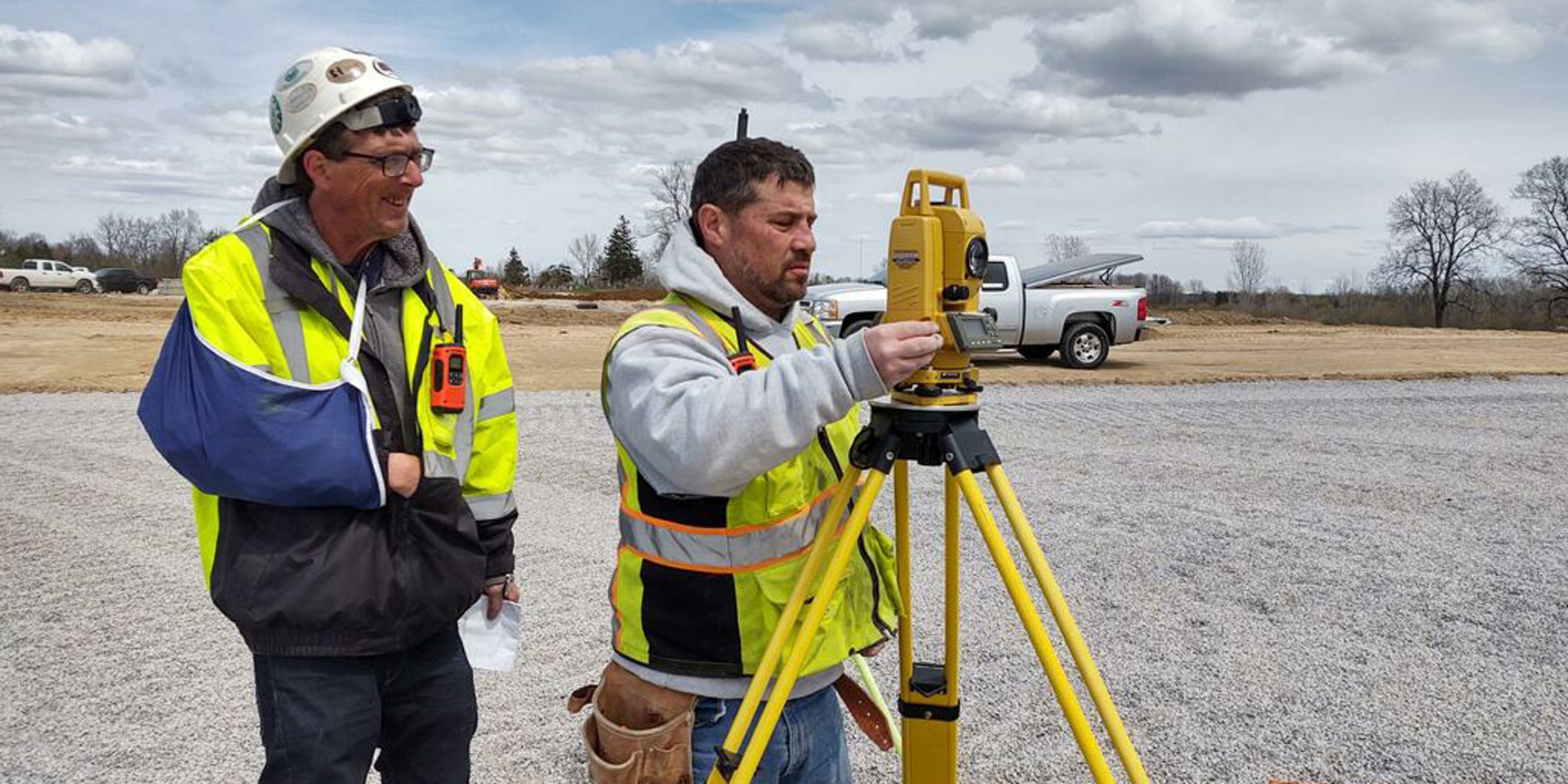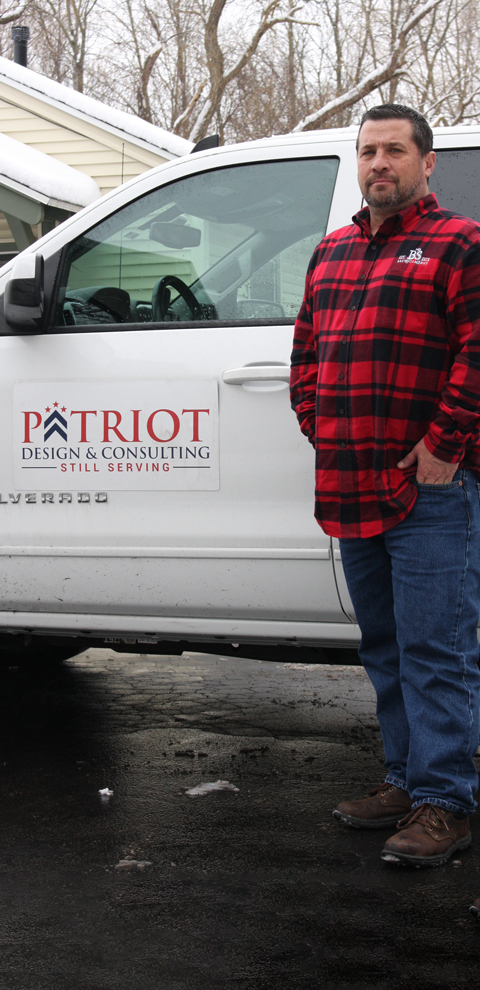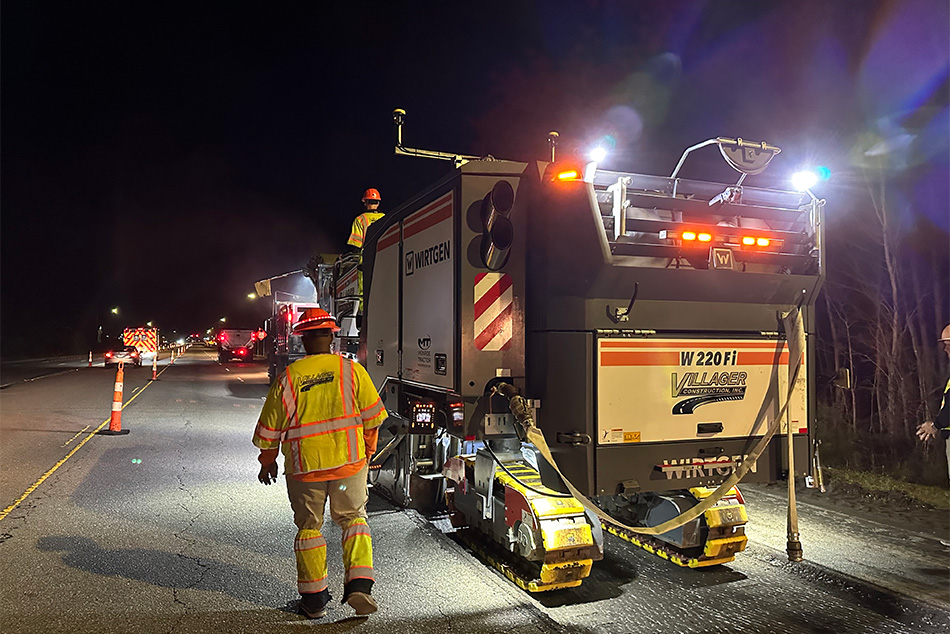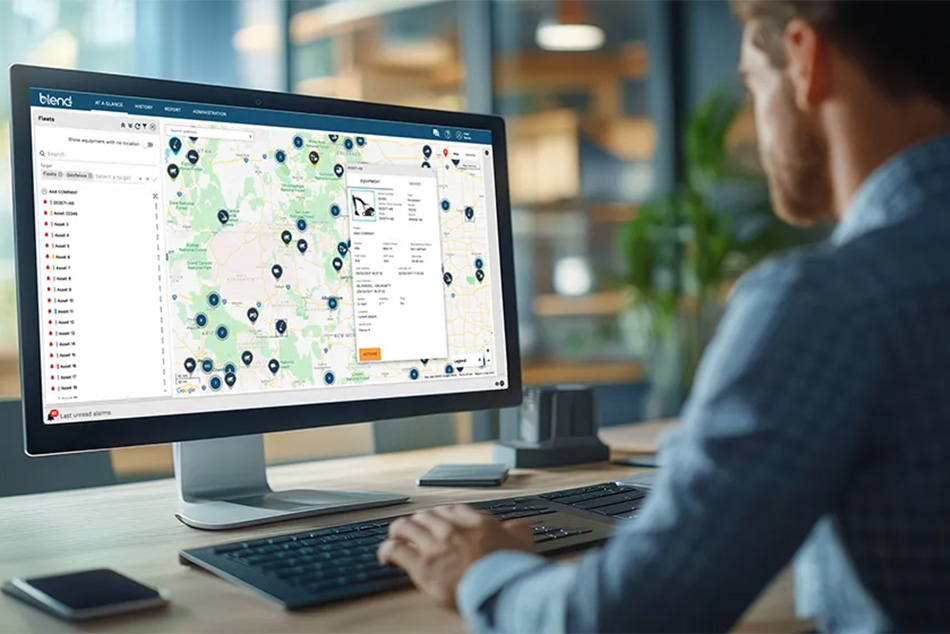Advocate for Change
Founded in 2013 as MacDonald Land Surveying & Engineering, a full service surveying company, owner Dan MacDonald drew upon the skills he had acquired in the military.
“A forward observer directs artillery, and that action is essentially a survey function,” he said. “Then, in my second enlistment, I was in intelligence as a mapping specialist. Both of those jobs were interesting, so when I got out, I went to college for civil engineering. Although I got a job doing that, I am an outdoors person at heart and didn’t like being in an office all day. Confident that I could handle a survey instrument, I landed a job with a company doing pipeline surveying. Shortly after that, I got my degree in surveying from Alfred State College and felt like I was finally where I needed to be in my career.”
Soon, where he needed to be ran headlong into what he needed to do. Though the economy was in decent shape and jobs were available, few employers were aware of the challenges facing returning veterans like himself.
“When I got out, I quickly realized that there are certain things civilian employers didn’t quite get,” he said. “For example, if a vet has a 10:00 a.m. appointment at a VA hospital, and is asked by his employer to change that appointment, he or she might have to wait six months to get another chance to see a doctor. It’s not as easy for us as it is on the civilian side, and the average employer doesn’t realize that. Situations like that prompted me to want to advocate for vets going though those kind of issues.”
Kindred Spirits
In the course of building his business, MacDonald had regular interaction on projects with Rex Tolman, owner of Tolman Engineering, a Jamestown, N.Y.-based firm that offered expertise in civil, mechanical, environmental and municipal engineering. There was not only a great deal of professional synergy between the two companies, both firms were headed up by disabled veterans and active in the area of promoting the cause of veterans in the workforce.
“Rex had been in business since 2002, and, in addition to doing projects together, we had both been working hard to gain passage of the New York State Service Disabled Veteran-Owned Business Act. In 2014, he got a call from a major general contractor asking if he could provide survey services for a project. We did the job together and the contractor loved our work — on time, under budget, no problems. From that point forward, we just felt it would be mutually-beneficial to combine our disciplines under one company name. So we did, and in May of 2017, Patriot Design & Consulting was born.”
Today, that company employs more than 20 full-time people — a number that swells by nearly 30% in summer when construction inspectors are added. And, according to MacDonald, the workload is such that they could easily support a larger staff — if people were available.
“Everyone in construction today is struggling to find people to fill positions,” he said. “Add in the fact that a survey/engineering function is a bit more specialized and that we are actively seeking to fill those slots with disabled vets and the challenge becomes even greater. But we try to do what we can and have landed some really great, very talented people along the way.”
No Requirement Needed
While being a Service-Disabled Veteran-Owned Business (SDVOB) does afford Patriot a small advantage when competing for work — the passage of the bill they championed helps ensure that — they’ve secured most of their work based on performance rather than quota.
“Truth be told, there are not a lot of SDVOB firms in the survey/engineering world,” he said. “So we are kept very busy because of our status. On the other side of that coin, however, we regularly get asked to come out on jobs with no such requirement. I have to believe that’s the result of the emphasis we put on high quality service to our customers.”
A good percentage of Patriot D&C’s survey work — roughly 25% — revolves around FEMA-related projects, including flood-plain surveys and bridge assessment, work that, without the proper instrumentation, can be labor-intensive. A long-time proponent of use robotic total stations, MacDonald, with Topcon equipment acquired through the Rochester branch of Admar Positioning Solutions, has used them to streamline that laborious process.
“Depending on what you are doing, a robot can make you a one-person operation versus two,” he said. “And, in many cases, I find the robot to be faster than doing a job with two men. If we are doing a topo survey in a wide-opened field, for example, the robot is tracking me, I stop, plumb up and get the shot. There is no coordination between two people needed — and, more importantly, no mis-communication between me and the second person. It’s fast, it’s accurate and it’s reliable.”

















